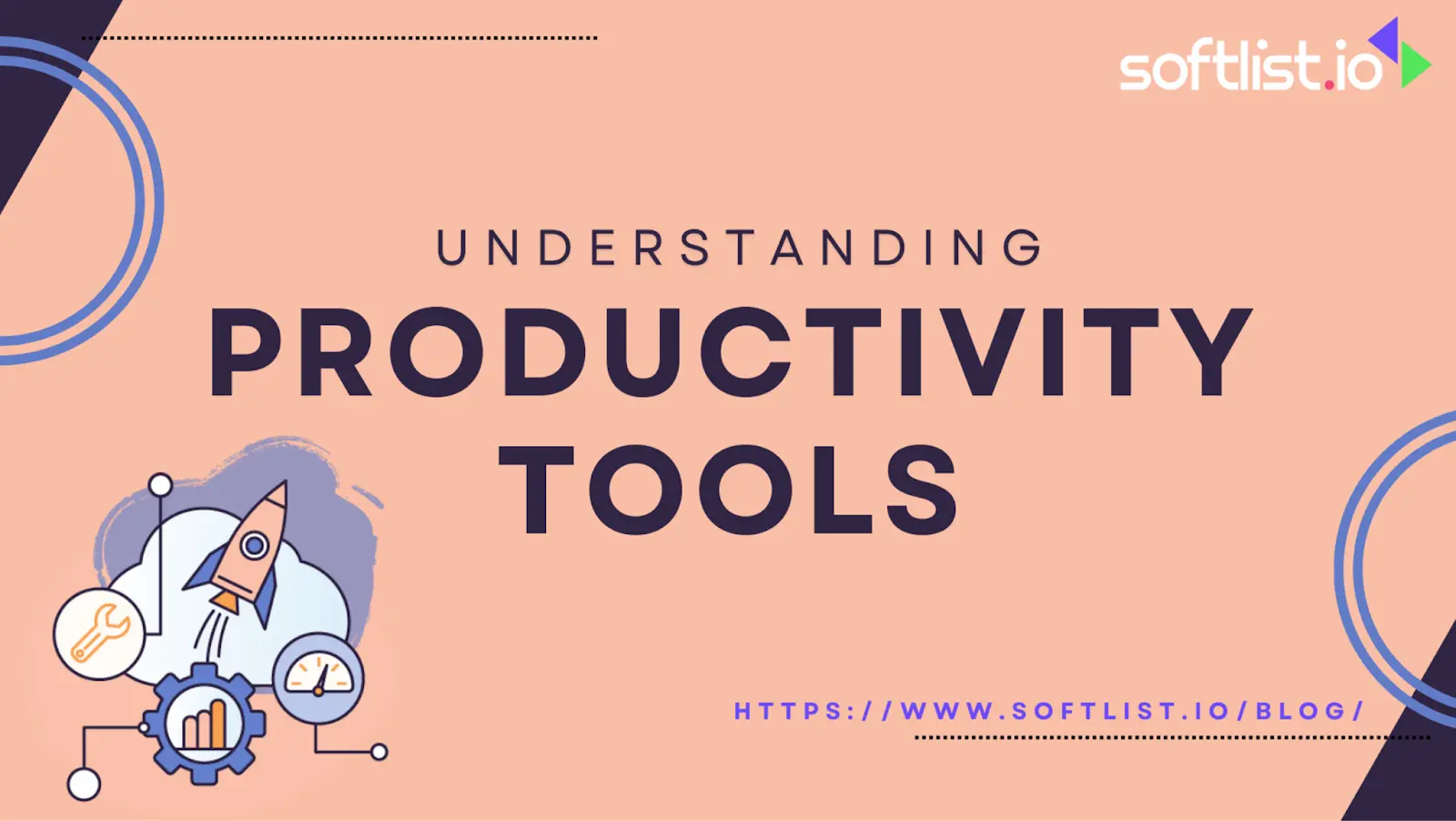Productivity tools have become a booming business, and they can help increase productivity. Suppose you are looking to boost your company’s productivity. In that case, so many great options are available to you. If you’re considering improving your company’s productivity, artificial intelligence is one option that could help you.
What Are the Best Productivity Tools That Can Help Me Get Things Done Faster and Easier?

Source: Anete Lusina of Pexels
The best productivity software and apps can help you get more done faster. Whether you’re a small business owner or just looking for a new way to manage your tasks, we have the tools to help you be more productive.
Project management tools are software and online services that help people manage their projects. They can be used to manage tasks, schedules, and budgets.
Here are some of our favorite productivity tools available:
Todoist: Todoist is one of the most popular to-do list apps, with great features like location-based reminders automatically adding tasks as you walk by them.
Evernote: Evernote is an app for note-taking and organizing all kinds of information — text, images, audio, and video. It also has a desktop app to access your files wherever you go.
Google Calendar: Google Calendar is a free calendar app that lets you keep track of your daily schedule, share it with others, and set reminders for upcoming events. You can also create multiple calendars for different parts of your life (work, home life, social) so things stay organized even if they overlap occasionally.
Microsoft Office 365: Microsoft Office 365 is an online suite of Microsoft Word documents and other applications that let you create, edit, and share documents from anywhere with internet access (not just your office).
What Is the Most Efficient Way to Increase Productivity?

Source: Roberto Hund of Pexels
The best AI productivity tools are the most efficient way to increase productivity. AI tools can help you manage your tasks, organize your schedule, and get things done faster.
AI can help you work faster, smarter, and more efficiently. But before using AI tools, you need to know what they do and how they can help.
AI productivity tools are computer programs that help you complete tasks much faster and easier than before. They can be handy for businesses of all sizes, as they’ll help you automate your routine processes and free up your time so you can focus on more important things.
AI productivity platforms are becoming more and more popular every day. They can help you manage your tasks, organize your schedule, and finish things faster. The best thing about it is that you don’t need to spend hours looking for them or installing them on your computer or mobile device. All you have to do is sign up for a free trial account and use the tool immediately!
Are There Any AI-Powered Tools to Help Me Manage My Tasks and Schedule More Efficiently?

Source: George Milton of Pexels
Productivity is something that everyone wants. It’s a goal we all aim for in some way or another. But when it comes to actually achieving that level of productivity, it’s not always easy. We all have unique situations and needs that make it challenging to stay on track with our daily tasks and responsibilities.
Many productivity tools can help you manage your tasks and schedule more efficiently. These tools use artificial intelligence to make your life easier. One of the most popular is Todoist, which uses machine learning algorithms to suggest relevant tasks for you.
Todoist also has a handy feature that automatically adds tasks from emails, so you don’t have to do anything extra. Forward email messages you want to be added as tasks to Todoist’s unique email address, and they’ll be added automatically.
Another option is Google Calendar. You can create events and reminders on Google Calendar with the help of AI-powered machine learning algorithms that know how much time you need for each task and when it’s most appropriate for you to do it.
Several productivity apps also use AI to help manage your schedule, including Asana, Trello, and Wunderlist.
What Is the Purpose of AI Productivity Tools?

Source: William Fortunato of Pexels
Artificial intelligence (AI) is the technology that makes it possible to program computers to act like humans. AI can be everywhere, from self-driving cars and virtual assistants to smart home devices and business software. AI productivity tools use AI technology to help you manage your workday more efficiently.
The primary purpose of AI productivity tools is to help you get more done and accomplish your goals faster.
They do this by integrating with other apps and services you already use so you can get the most out of them. For example, use Google Drive, Microsoft Office 365, or Dropbox for file storage. An AI productivity tool can let you edit those documents directly from within the app without going elsewhere first.
Some AI productivity tools also offer features that aren’t related to organizing your tasks or documents but still make it easier for you to get things done. For example, some apps automatically add attachments like photos and videos when you create a new task in their system or create meetings based on your calendar entries without additional input.
AI productivity tools are designed to help your workers do more with less time, allowing them to focus on their most important tasks instead of getting bogged down by the mundane tasks that machines can do.
What Are the Main Goals of AI Productivity?

Source: Eren Li of Pexels
Artificial intelligence (AI) is a significant topic in productivity and work. As AI becomes more common, it’s essential to understand how it can impact our lives and how we can use it to improve our lives.
AI systems are designed to automate repetitive tasks and make them more accessible for people to complete. They’re also designed to help us make more informed decisions about the tasks.
AI productivity uses artificial intelligence to boost your productivity and make you more efficient. The main aim of AI productivity is to increase your productivity by automating tasks that could better use your time and energy.
AI productivity tools can help you save time by automating mundane tasks, like scheduling meetings or responding to emails. They also help you become more productive by helping you focus on the tasks rather than getting distracted by unimportant things.
The best AI tools for productivity will help you get things done faster and more efficiently to spend more time doing what matters most.
What Are Some Examples of AI Productivity Tools?

Source: Ono Kosuki of Pexels
AI productivity tools are a great way to streamline your business processes and save time. The key to using AI productivity tools effectively is to know what they can do and how they work.
You can improve communication by using tools to collaborate online with your team members. This can include various tools, such as Slack, Google Drive, and Trello.
Here are some examples of AI productivity tools:
Virtual assistants. Virtual assistants can help you with everything from scheduling meetings, creating reports, sending emails, handling customer service issues, making reservations, and much more. They’re also great for helping you stay organized by reminding you of meetings, birthdays, and other important dates.
Chatbots. Chatbots can answer basic questions about your company or products and services, provide FAQs, and even take orders from customers who prefer self-service over traditional phone calls or email correspondence with a live person.
Machine learning algorithms. Machine learning algorithms analyze large amounts of data to predict trends or patterns humans might not detect. This can improve decision-making processes by providing real-time insights into employee performance metrics like attendance rates, call center metrics like call times, and other key metrics that impact employee performance within an organization.
How Can I Use AI Productivity Tools in My Business?

Source: Gary Barner of Pexels
Certification is a great way to show off your expertise in a particular area. It’s also beneficial because it allows you to learn new skills and techniques that will help you become even more productive in the future.
Productivity is the ability to get things done effectively. Productivity is also known as efficiency or effectiveness. Productivity can be measured by how much output is produced about input.
AI productivity tools can make your business more efficient, save time and money, and improve your work-life balance.
AI is changing how we work, but not just the big companies can benefit from AI. Small business owners can also use these tools to help organizations grow their business and increase efficiency.
AI productivity tools are tools that help you get things done. They can automate repetitive tasks and make you more efficient. The best AI productivity tools will also give you a better understanding of your business so that you can make better decisions and better results.
The most common use of AI productivity tools is to automate manual tasks. This includes scheduling meetings and emails filling out forms, and creating documents like contracts or purchase orders.
Some AI productivity tools can help with decision-making and planning by providing insights into your data. These include dashboards and reports and machine learning algorithms that analyze your data to provide recommendations on what to do next.
Conclusion
Finding the perfect productivity tool for your team or personal use can be time-consuming and challenging. When you add artificial intelligence to the mix, things can get even more challenging. The good news is that there are tools out there that are designed to help you with just this problem. Whether you’re looking to track overall productivity, help sales teams have a productive day, or whatever it may be, an AI assistant tool is available.
Productivity tools help you to be more productive. They can make your tasks or meetings more productive. Changing habits takes time, just like reading this article. Don’t give up and keep at it; you will find that using productivity tools will help you in this area of your life.
Please check our blog to learn more about business solution productivity tools.
FAQs
How do I use AI productivity tools?
These tools require little setup and are easy to use. You must give them access to your data (such as emails), learn about your behavior, and let them do the work for you. Some may require additional training before they can start helping you out.
Why Use Productivity Tools?
They make it easy to manage multiple projects at once by allowing you to create task lists and set deadlines for each project or task list item. You can also schedule reminders so you don’t forget about upcoming deadlines or meetings. They allow you to keep track of all your projects and tasks in one central location so that you don’t have to remember everything in your head anymore!
What Are Productivity Tools?
Productivity tools are software programs, websites, and apps that help you organize and manage your tasks, notes, calendar events, and emails. They also help you stay focused on essential tasks by blocking out distractions like social media and email.






